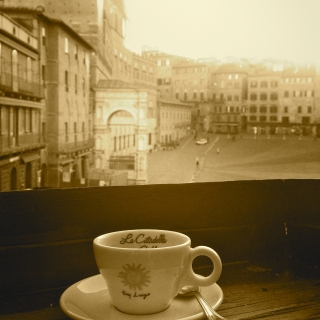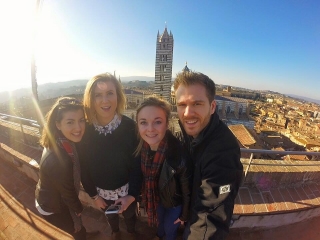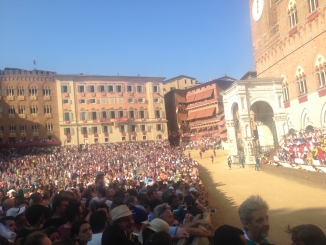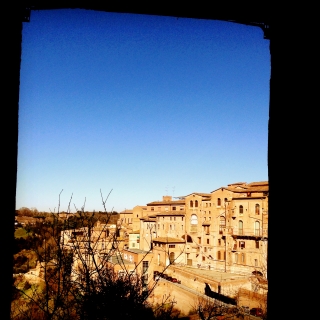In their third year at university, students in the Department of Modern Languages and European Studies at the University of Reading go abroad to live, study, and work. They head to France, Italy, Germany, Austria, and Canada; soon they’ll also be going to Spain and Latin America as well. We’ve asked some of the students who have just come back from their year abroad to let us know how they found the experience. Here’s a reflection from Elliot Reeman, a final-year student of French and Italian, who has some advice for those of you getting ready to set off on your adventures abroad:

Our weekend road trip to Castiglione Del Lago with our Italian friend, Beatrice. An amazing weekend filled with bbqs, swimming, taking her boat out on the lake etc. So memorable.
Firstly, I hope this post will serve to comfort, inspire, or at the very least deliver insight to those either contemplating or preparing for a year abroad. I had access to information from former language students prior to going abroad, and I really do believe that every bit of advice/knowledge is valuable.
I’ve never actually ‘blogged’… so I guess I’m just going to outline my experience and try to highlight things I learned to avoid, things I learned NOT to avoid and the best ways to make a super memorable chapter of your lives, because (for the record), I had an incredible time in Siena. I really did.
My mobility to Siena was the second of my two study placements (as I also study French), and was a period of five months between the 10th February and the 10th July.
I was very lucky with many aspects of my time in Siena which helped with my arrival and which positively impacted on my experience in general. A close university friend of mine who studies single honours Italian at Reading was to spend her entire year abroad in Italy (Siena), and this meant that she had settled herself in Siena 5 months prior to my arrival (whilst I was in France). Through her, I was able to fill a room in the same apartment building which a student left, presumably having only spent the first half of their mobility in Italy. I was given the contact details of the landlady in advance and this was all confirmed well before my arrival. I suppose this is exactly why having information, such as posts on this blog and points of contact, is so important and valuable. With people and their information readily available, you’re so much more likely to find something or someone to make your transition smoother and easier.

This cafe in the Piazza offers customers their balcony. A perfect spot for a morning espresso whilst watching the people go about their days. It’s funny… the whole town seems to adopt the same care-free pace of life here – so refreshing.
In the six minutes spent in the taxi from the train station, going through the old, narrow, cobbled streets of what was to become my new home-town, I made up my mind that I had chosen well and that I was going to thoroughly enjoy my time here.
The only type of person who I can imagine not enjoying Siena is someone who needs huge, busy cities. Siena has enough charm and character to last you a lifetime. Just a look at the view from my apartment window should give a clue – and this is completely standard view for an apartment in Siena!
There is so much intriguing culture in Siena, the likes of which I can almost guarantee you won’t have come across, and being a resident as opposed to a tourist, it makes you feel an actual part of something so special. I realise I’m not actually explicitly describing said culture, but that’s because I don’t think I can. You simply have to experience it. I will say this: the town’s medieval history can be felt (and often seen) in every street within the walls. Imagine having your breakfast interrupted by the sound of drums, only to get up and look down onto the street from your window and see the whole street filled with men dressed in medieval armour and carrying pikes… well, this happens in Siena.
I could write for days about the things I did and saw (and ate) in Siena, so I’m really trying hard to condense. For this reason, I am going to switch to a list. Call me lazy, but I’m saving your scrolling finger. I just want to highlight the things I believe you should do, and those you shouldn’t:
1: GET A MAP – a good one! Whether it’s Tuscany or any other region, give yourself a real sense of where you are in relation to your host country. Not only will this save potential embarrassment, but you can then see what’s around you.

This is on top of ‘the arch’ alongside il duomo di Siena. Offers spectacular panoramic views of Siena and the surround tuscan countryside – Free to go up for Erasmus students with your student card! FYI, that’s Elliot’s on the right.
2: EXPLORE – Once you’ve got your map, I suggest picking a surrounding or neighbouring town/village each fortnight, research it a little, and make it your quest to explore it! Public transport does exist everywhere (even if it can be frustrating). Of course, prioritise getting to know the town/city you live in, but spread your wings – you’ll thank yourself later.
3: MAKE NATIVE FRIENDS – So, in Siena, we had a small local bar – called ‘Bella Vista’ for anyone interested. We befriended the girl who worked behind the bar – an incredibly outgoing Italian girl in her mid-twenties who lived in Siena. She happened to have a car, and this made point number 2 absolutely amazing for us. It also made number 1 slightly redundant for us… It also means that you are much less likely to fall into the English-speaking trap if you live with other English students. It’s just the best thing you can do to enhance pretty much ever aspect of your experience.
4: PACK LIGHT – Moving to France in September, I made a bit of a mistake. “France is nearby, let’s take a drive down with the parents and move in a completely full car-load of possessions.” No. It was a nice idea, and I did enjoy my 30” computer monitor and printer, but no. Obviously Italy isn’t the same – you’d have to be a bit of a fool to drive from England, but my point remains: having just one large suitcase and one hand luggage case is SO much better. I still had plenty of my clothes, and it meant that short trips were manageable and ultimately, moving back was stress-free – let’s just say that moving out of France involved much cardboard and duct tape… So pack light(er) people.

Our trip to Follonica – the nearest and prettiest coastal town to Siena. Can’t be without the beach, now!
5: BRAVE THE PAPERWORK – Okay, so it’s no secret that the administration of a year abroad is a bit of a nightmare. We all get frustrated as hell with it, but when you think of it, organising a year long exchange on a national scale is a tough job. Do your paperwork EARLY. Yes, you will probably have to print out and scan the same form around 3 times, and yes the office will be open at the stupidest of hours in France, but persevere because the simple fact is that you can get into all sorts of post-mobility trouble if you leave it late. Besides, you want that generous government money, too!
6: SPEND WISELY – If you can, think ahead and put money aside for your year abroad. Yes, you do get some money from Erasmus/government, but I want to stress how being in a new country presents you with SO many exciting opportunities. You want to be saying yes to as many things as possible, and many of them won’t be free. Italy was not expensive. In fact, my accommodation; the food; the drink… these were all impressively inexpensive compared to England. The only thing is that, because of this, you’ll want to experience dining out, having evening drinks, taking day trips etc. much more frequently. In a sentence: think about how to financially manage a lifestyle you’ll both enjoy and be able to maintain right up until your departure.

Palio Day in the Piazza del Campo, which is ram-packed with
spectators waiting for the horse race to commence. The build up to this 3-minute long race is electrifying.
Much of what I’ve written refers to the Year Abroad in general rather than specifically rather than Siena specifically. Anyone thinking about / preparing for / in Siena who would like more detailed information about my experience or advice, please get in touch with me. In the meantime, I hope that my photographs can to the talking with regards to my cool experiences and some of the great places I went. These include much drinking in the Piazza del Campo, road trips to lakes and, of course, the famous Palio. Bouna fortuna à tutti!


